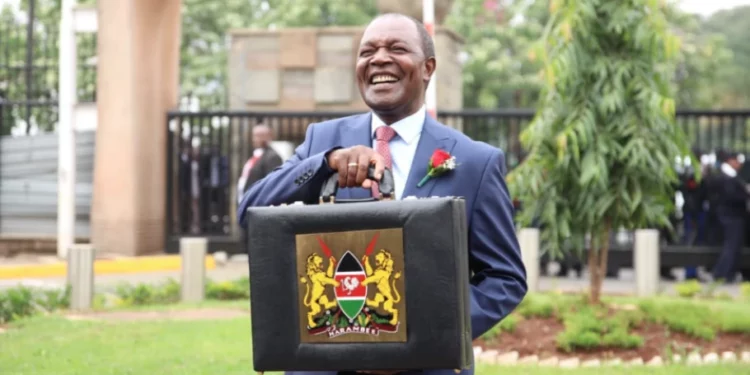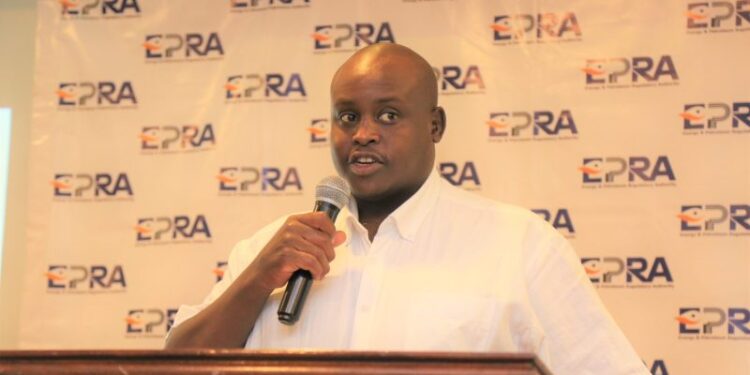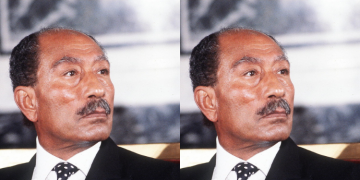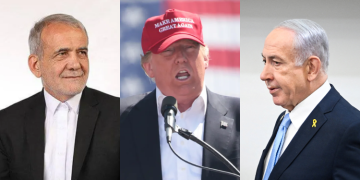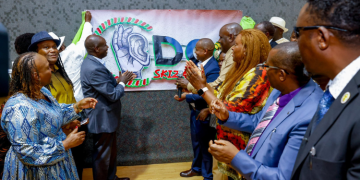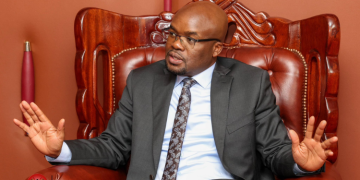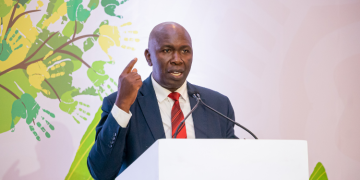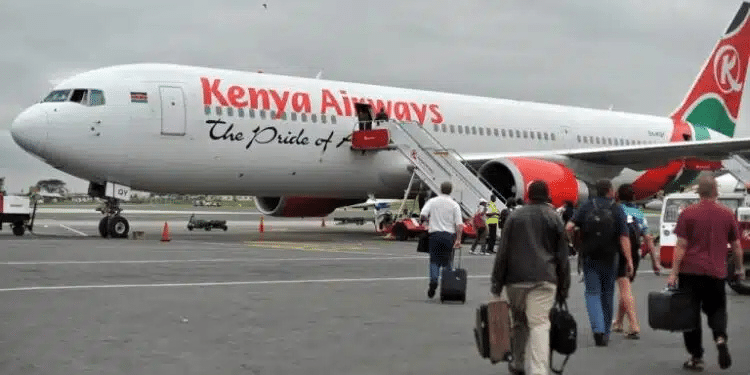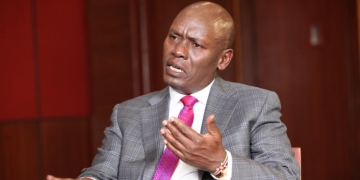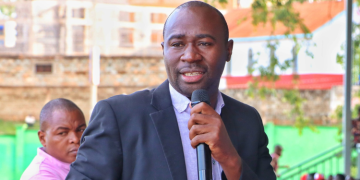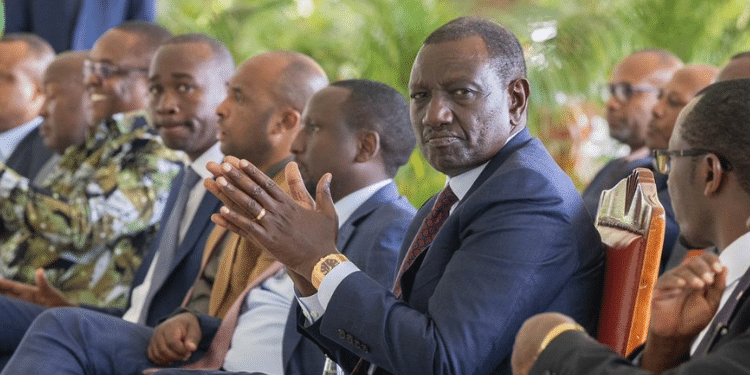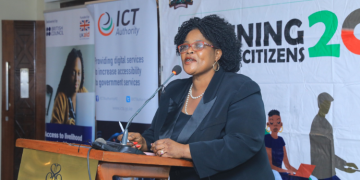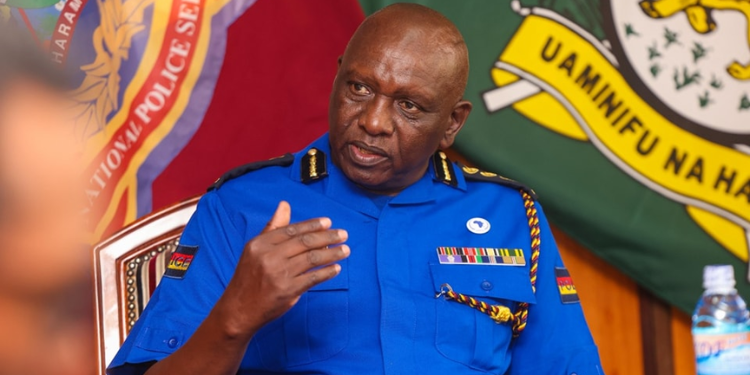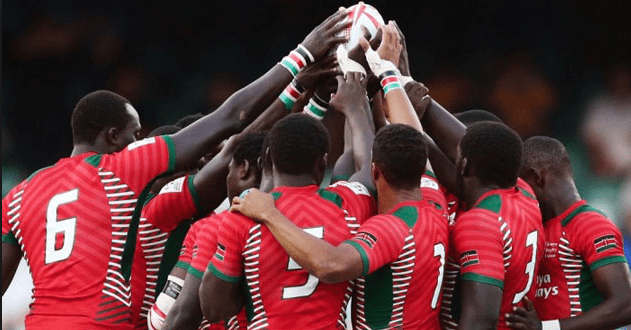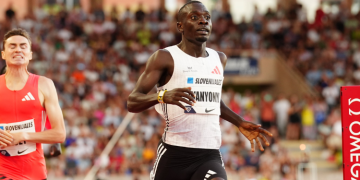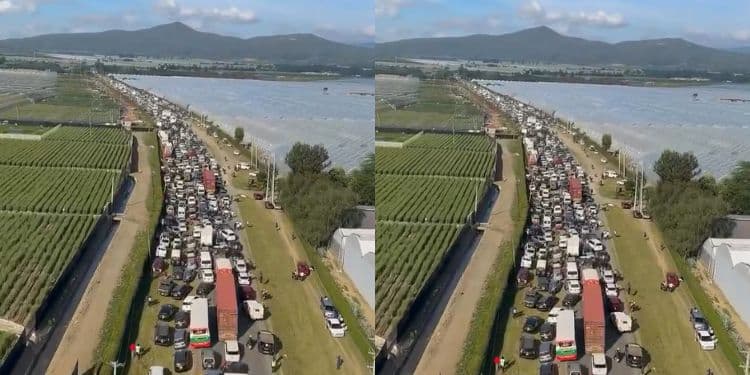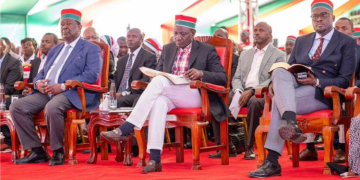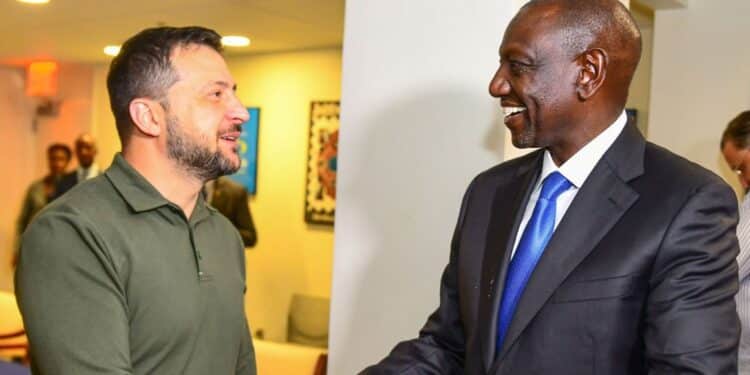On November 14, in a media press briefing after the arrival of Romanian President Klaus Werner Lohannis, President William Ruto commented on the Ukraine – Russia war, citing that it was the reason behind the spiking prices of basic goods.
Additionally, he noted that the ripple effects of the war have created a dire situation not only in Kenya but also in the entire African region.
“Three things have happened, commodity prices have escalated because of the war, affecting items such as fertilizer and grains.
This has, in turn, led to an increase in food prices, resulting in a higher cost of living for our continent, with particularly detrimental effects on the vulnerable population,” President Ruto said.
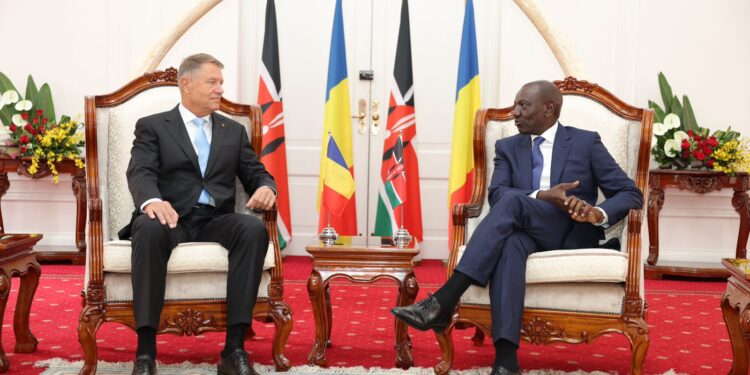
However, this seemingly normal statement laden with blame for overseas conflicts was all too familiar.
Interestingly, the Ukraine-Russia war broke out in February 2022, while Kenya was in the hands of former President, Uhuru Kenyatta.
President Uhuru on Ukraine – Russia conflict
When the cost of living went up, former President Uhuru blamed the war, claiming that it was outside of his control.
“There is this war we don’t even understand that has caused fuel and food prices to go up in other countries and brought us other challenges… I, Uhuru Kenyatta, surely, am I in Ukraine? Was I in Wuhan when Covid came?” quipped Kenyatta.
At that time Ruto was quick to fault the regime, saying that the war in Ukraine had nothing to do with the high cost of living in Kenya.
“Therefore, the challenge of cost of living is not too scientific. The challenge of cost of living is increasing agricultural productivity. Period,” Ruto said.
During the campaign period for the 2022 general elections, Ruto promised that he would lower the cost of living when he became president.
Also Read: President Ruto’s State of the Nation Address; FULL SPEECH
However, this was not to happen.
Ruto and economy, one year in office
In the run up to the 2022 polls, Ruto raised the hopes of Kenyans by crowning himself the hustler president.
According to Ruto, the term hustlers referred to the common mwananchi.
Therefore, the hustler nation was envisioned to be a sociopolitical movement of hardworking Kenyans from all walks of life desirous of a better Kenya despite one’s background.
Economists among other experts shared this dizzying hope in Ruto’s economic policies, hoping that he was ushering Kenya into the golden era.
However, Professor XN Iraki was quick to pop most Kenyans’ hope balloon, ushering them back to reality.
Speaking to The Conversation, the Professor noted that Kenyan voters were in for disappointment, as Ruto’s economic policies slowly took shape.
“Ruto made the economy the main focus of his campaign, promising Kenyans a radical transformation if he won.
But in politics, promises and reality are two different things. Implementing a manifesto will require money and new economic structures, and even face resistance from defenders of the status quo,” Professor XN Iraki noted.
This point, however, was lost on most Kenyans.
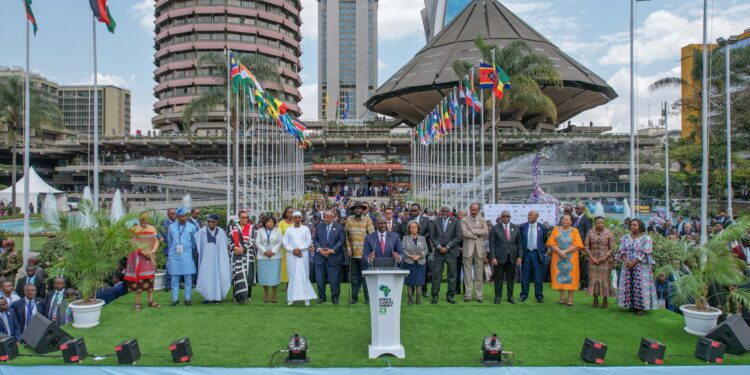
Ruto blames Ukraine for cost of living, for the first time
Despite bashing his predecessor for blaming Ukraine Russia war for the cost of living, now he walks in his shoes.
Notably, Ruto has been careful when talking about the global wars, and their effect on the Kenyan economy.
In fact, until his slip up on the November 14 press briefing, President Ruto had never blamed the ongoing conflicts for the rising costs of living.
However, his Cabinet Secretaries have not minced their words on the issue of the conflicts.
Cabinet Secretary for the National Treasury blamed the Russia Ukraine conflict for the hiking cost of living in his keynote address for the budget preparation process for the financial year 2023/2024.
Also Read: Hamas War: A Two-State Solution to the Israeli-Palestinian Conflict
“The ongoing Russia-Ukraine conflict has resulted in disruption of global supply chains which in turn has caused a sharp rise in the prices of energy, food, and other commodities thereby triggering high inflation,” Prof. Njuguna Ndungu noted.
Despite all this, the question remains on the ongoing global conflicts.
Is the ongoing Russia-Ukraine war and the Israel Hamas war an easy excuse by Kenyan leaders or is there more than what catches the eye?
Economic Experts Weigh In
Speaking to The Kenya Times, Professor XN Iraki noted that the excuse was valid. However, it should not be overused.
“Ukraine war is definitely affected Kenya, disrupting oil and food, most especially wheat. But that does not absolve the government from making decisions and policies that mitigate these effects,” Professor Iraki further noted.
Similarly, Prof. Fred Ogola, the Chairman of operation Linda Jamii told The Kenya Times, that the Ukraine-Russia War and the Israel-Palestine war were not the major cause of economic woes in Africa, particularly in Kenya.
However, he was quick to note that the global conflicts were just a running excuse, and the power lay in the President’s hands.
”The President -what is he doing to address Kenyan problems?” Professor Fred posed.
Concurrently, he noted that it was a political strategy for the President to blame a factor other than himself for the woes in the country.
Economically, however, according to Prof Ogola, the internal factors in Kenya have affected the economy more than the ongoing global conflicts.
“Ruto has chosen austerity and increased taxation in the face of external factors,” Ogola explained.
Further, he stated that to fix the economy, the President and his cabinet must inject positivity, to attract investors.
By reducing the blame outwards, and focusing inwards, Prof Ogola noted that he was hopeful that the strategy would jumpstart the ailing Kenyan economy.
